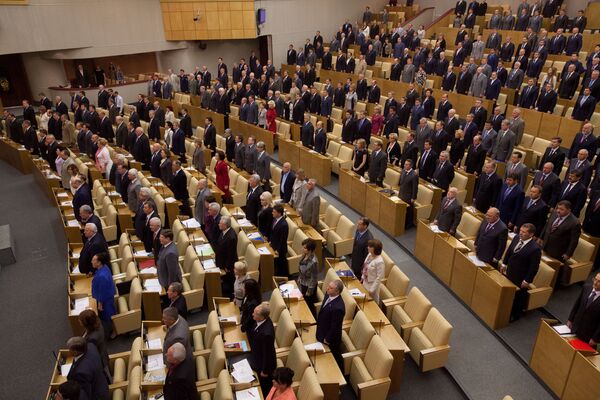Deputies from the State Duma, Russia's lower house of parliament, have approved a bill stipulating chemical castration for pedophiles, in a bid to crack down on sex crime against minors.
The overwhelming majority of Duma deputies - 331 of 332 - voted for the draft in its first reading, and one abstained.
The bill also stipulates that pedophiles would be stripped of the right to plea for a suspended sentence, and re-offenders for sex crimes against minors will face life sentences.
The voluntary chemical procedure involves a regular application of injections leading to a fall in the level of the male hormone testosterone, which suppresses sexual drive. Its effect, however, is not irreversible.
President Medvedev, who first suggested the amendments in May, said punishment for pedophiles should be "as harsh as possible." "A liberal approach here is totally unacceptable," he said.
Chemical castration of pedophiles is used in several countries such as Canada, Britain, France, Germany, Denmark, Israel, Norway, Sweden, Poland, as well as in some U.S. states.
The need for a new draft law became obvious long ago. Before 2009, when penalties for pedophilia were finally stiffened, rapists were sentenced to just eight to 15 years in prison, and those convicted of sexually abusing children younger than 16 could get away with just a fine.
The year 2009 saw a rash of child rape cases: more than 9,500 children suffered at the hands of pedophiles in Russia. Nearly 1,000 of them were raped, of which a third were younger than 14.
The law was changed that year, with rapists getting sentences of to up to 20 years in prison. Despite their long jail terms, many convicts reoffend, and many are paroled.
Some politicians and advocacy groups claim that liberal laws and lenient courts enable too many offenders to escape punishment or to return to molesting children after serving only brief prison sentences.


